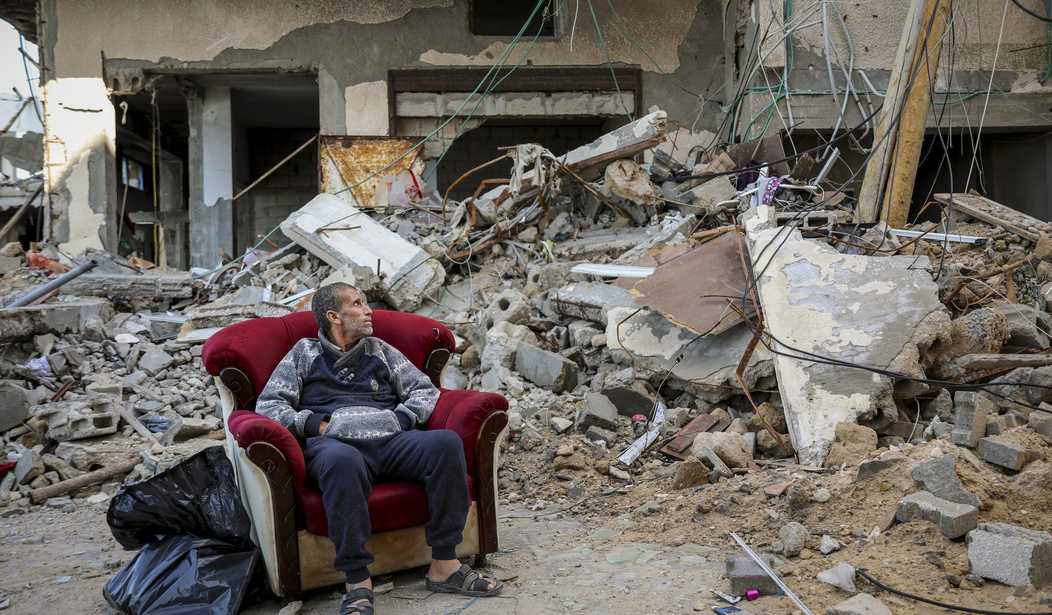Little has been heard about the future of Gaza since Egypt on March 4 rolled out its plan, following on President Trump’s announcement a month earlier, to transform Gaza into a “riviera.” Conveniently for Egypt, Hamas’s obstinance in the hostage negotiations and Israel’s current military activities in the area have stolen the spotlight.
But Gaza’s future will return to the spotlight before long. In fact, how Gaza is addressed should reflect a new approach to the Middle East.
That is likely why President Trump made his bold announcement about Gaza on February 4, the same day that he unveiled his “maximum pressure” campaign against the Iranian regime. The announcement’s rollout speaks to a regional vision that promises prosperity to all its inhabitants by, first and foremost, eradicating the Iranian regime’s dangerous influence.
The president’s announcement was a catalyst, driving regional partners to deliver on a plan for Gaza—a topic no one cared to address previously.
Egypt’s plan had positive elements, such as a multiphase approach for the reconstruction of buildings and other physical infrastructure.
But the plan fell short of U.S. and Israeli expectations in one major way: it didn’t mention Hamas. Not only that, but after six months of beginning implementation of the plan it calls for handing over governance to the Palestinian Authority—an institution mired in corruption and which provides stipends to families of terrorists as a reward for killing innocent Israelis.
Egypt’s plan also avoids the need to move Gazans temporarily out of the area, a step President Trump explicitly identified on February 4, and one that is necessary for completely removing Hamas’s exploitation of civilian infrastructure—places like schools, hospitals and children’s bedrooms—for its operations. Hamas must be denied all pathways to reconstitute.
Recommended
Egypt, together with our Arab partners, must return to the drawing table to present a new plan. And they must appreciate that this is not only about Gaza, but about the future of the region.
For the art of this deal to be successful—as with all things relating to Gaza—it cannot only be about Gaza.
How the United States and its partners address Gaza should reflect an overall approach to the region. It is the key to restarting the Abraham Accords, which were the signature foreign policy achievement of President Trump’s first term and have been virtually dormant since Hamas’s October 7 attack.
Today there is a new opportunity to not only restart the Abraham Accords, but to broaden their impact.
The Abraham Accords showed, for the first time in modern Middle East history, that nations could achieve greater prosperity and security for their people by de-linking their normalization of ties with Israel from the Israeli-Palestinian conflict. But in 2025—particularly considering the October 7 attack and the 18 months that followed—any normalization of ties with Israel must also prevent Iran or its proxies from attempting to create terrorist states in the region.
For Iran and its proxies, including Hamas in Gaza, land is leverage. So while Israel works to expel them from around the region, a parallel effort must replace Iranian footholds with civic infrastructure that cultivates good neighbors. Not only does that leave a better future for local inhabitants, but it also reinforces our deterrent capabilities.
This must be pursued in tandem with, and as part of, the U.S.’s policy towards former Iran footholds in transition: Lebanon, where Hezbollah is on its way out; and Syria, where Hayat Tahrir al-Sham (HTS), an al-Qaeda offshoot, appears to be filling the void left by the Assad regime. The West Bank, where Iran has flooded weapons over the last two years to stage a second October 7-style attack and where Hamas’s popularity remains high, deserves particular attention.
While the swift measures toward Iran and its proxies from nearly Day 1 are vital, the administration has yet to announce a policy towards Syria or HTS, with whom the Biden team met during its last days. Now he must simultaneously push for our partners’ cooperation in reconstructing Lebanon and parts of southern and eastern Syria as Israel diminishes Iran’s footprint there.
This “Regional Riviera” approach also calls out the fundamental problem of any premature push for a Palestinian state.
Gaza, where Israel has had no footprint since roughly 2005, is the closest thing Palestinians had to a state; that arrangement allowed for the October 7 attack to take place. From the standpoint of Israel and the United States, it’s irresponsible to talk of a Palestinian statehood without addressing governance and Israel’s security. Compelling our partners to share the burden for these regional efforts can be marketed to them as a step on what could be a path towards (not a promise of) Palestinian statehood.
Moreover, much as with the Abraham Accords—which defied the false regional narrative that there can be no separate peace with Israel without the Palestinians—addressing Gaza requires our partners to give up another regional myth hindering peace: that any movement of Palestinians is unjust.
In fact, from a practical standpoint, some residents of Gaza may temporarily need to move from the area that at present is, as the president described, a “demolition site” for the area to be secure, rebuilt and ultimately inhabitable. Jordan’s King Abdullah II understood this when he visited Washington and offered to take in 2,000 ill Gazan children.
Egypt must understand this as well. As the area geographically adjacent and with a population most ethnically and culturally similar to the inhabitants of Gaza (to say nothing of the vast amount of uninhabited area in the Sinai Peninsula), Egypt should step up to offer a place for Gaza’s inhabitants while their homes are rebuilt, as Israel’s Yisrael Beiteinu head Avigdor Lieberman argued.
In a post-October 7 world with an increasingly dangerous Iran, Arab states must think beyond the Abraham Accords’ framing of their own security vis-à-vis normalized ties with Israel.
Today, they must think of their neighborhood as well.
Jacob Olidort, Ph.D. is Director of the Center for American Security at the America First Policy Institute.

























Join the conversation as a VIP Member